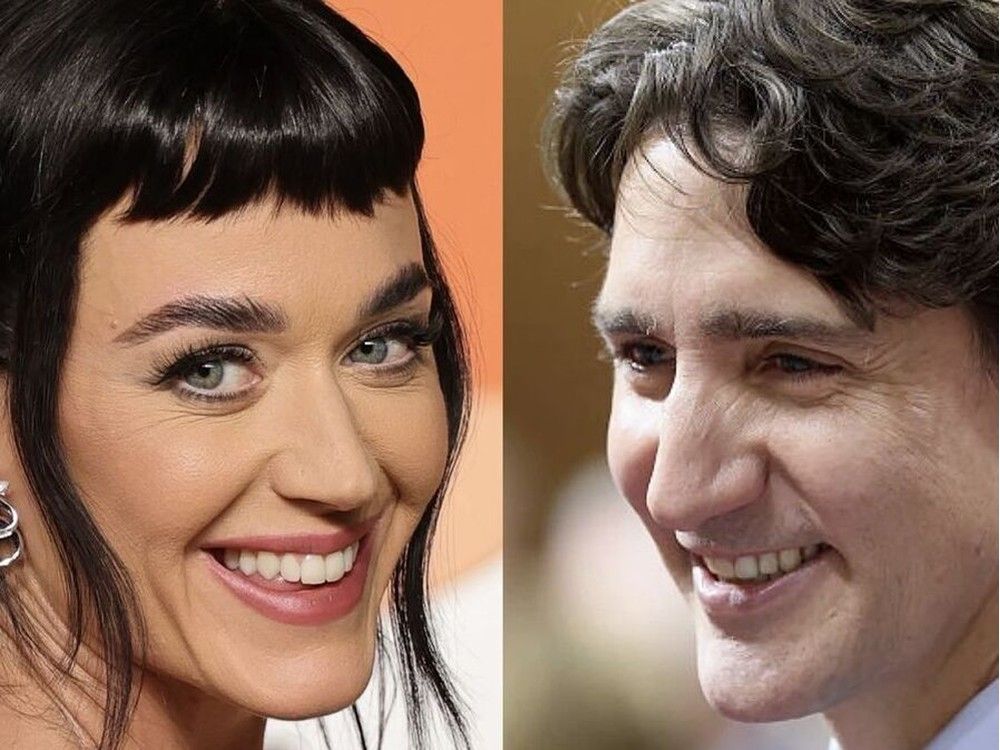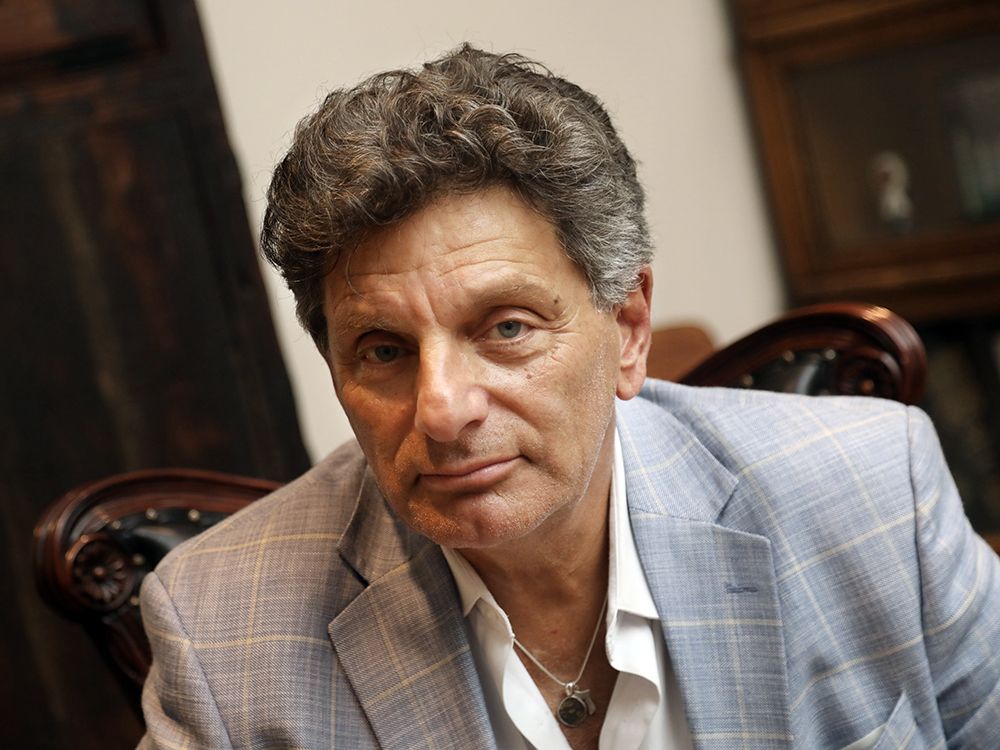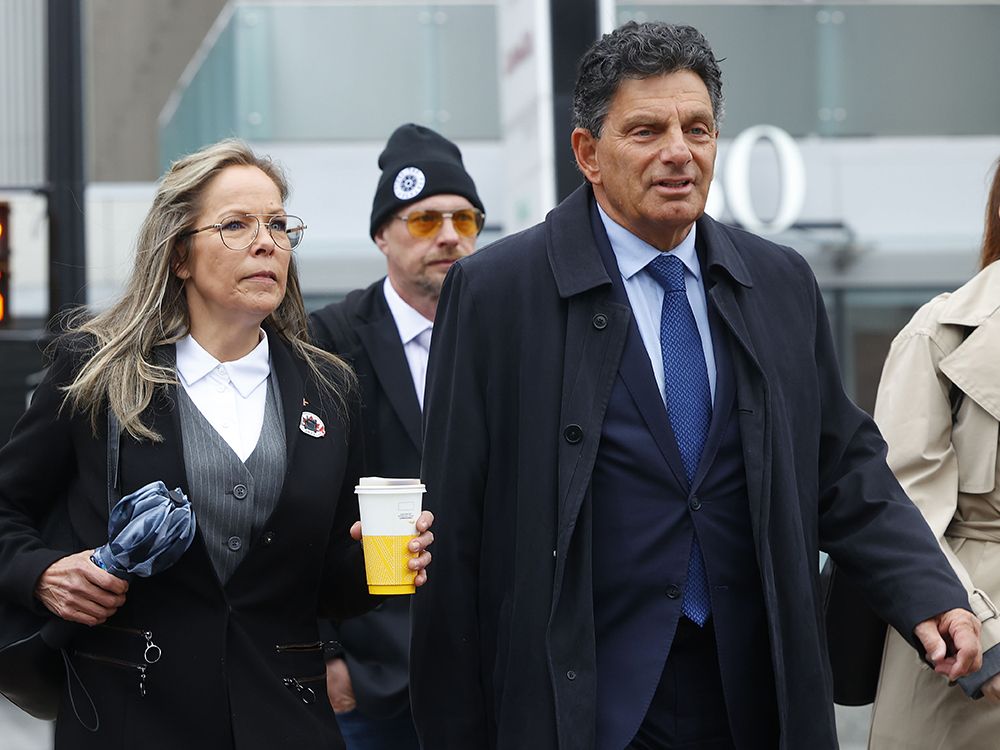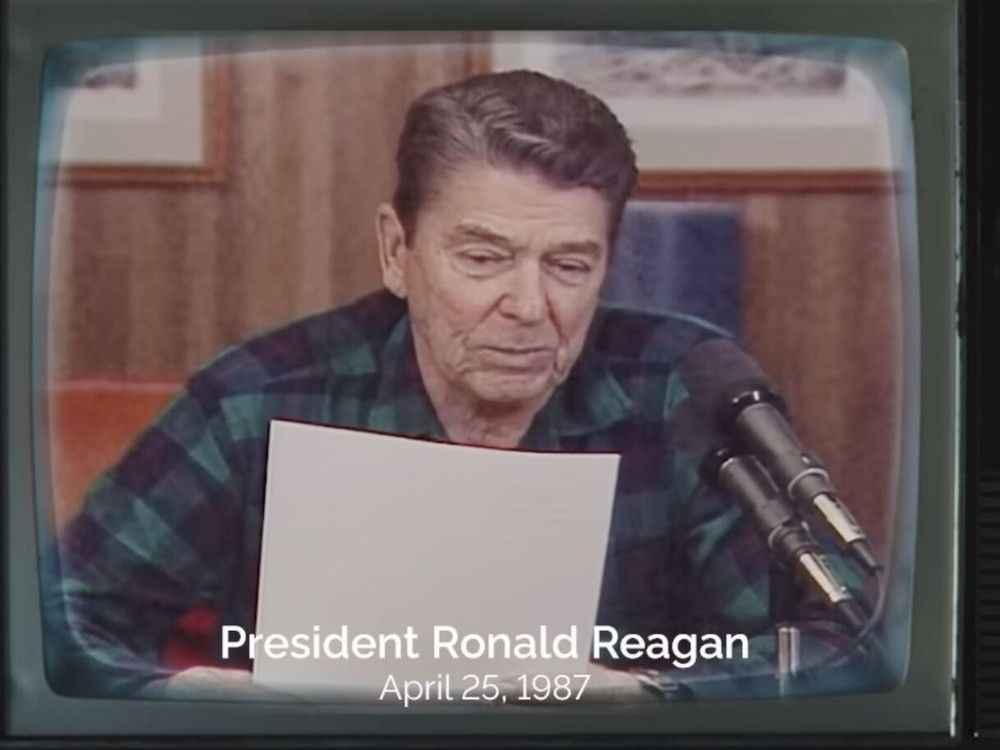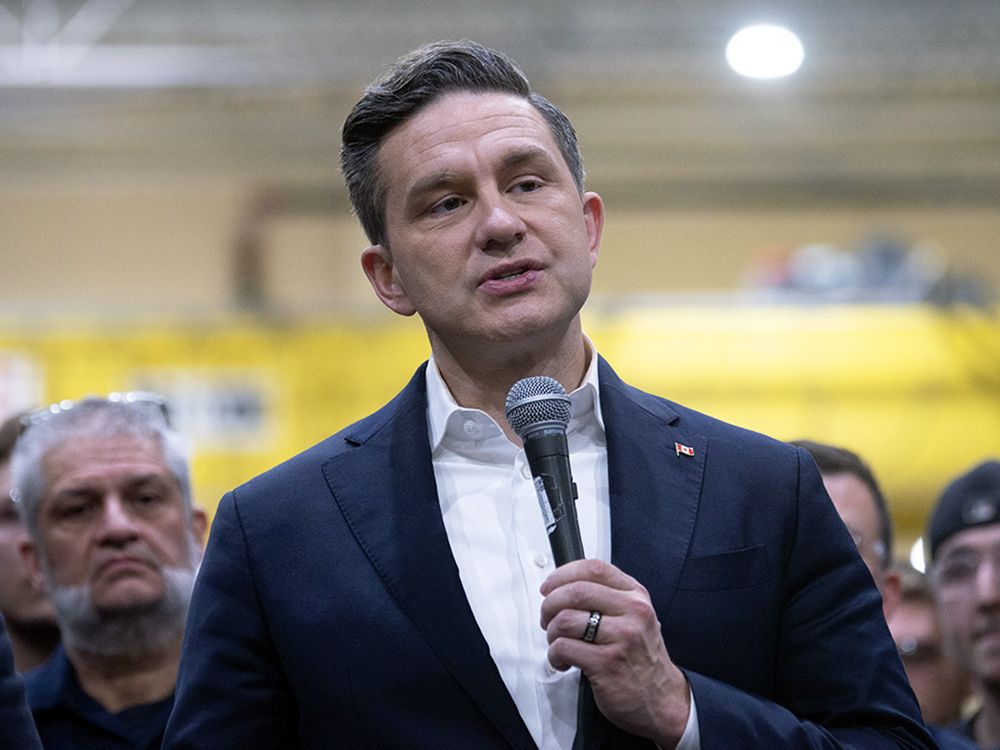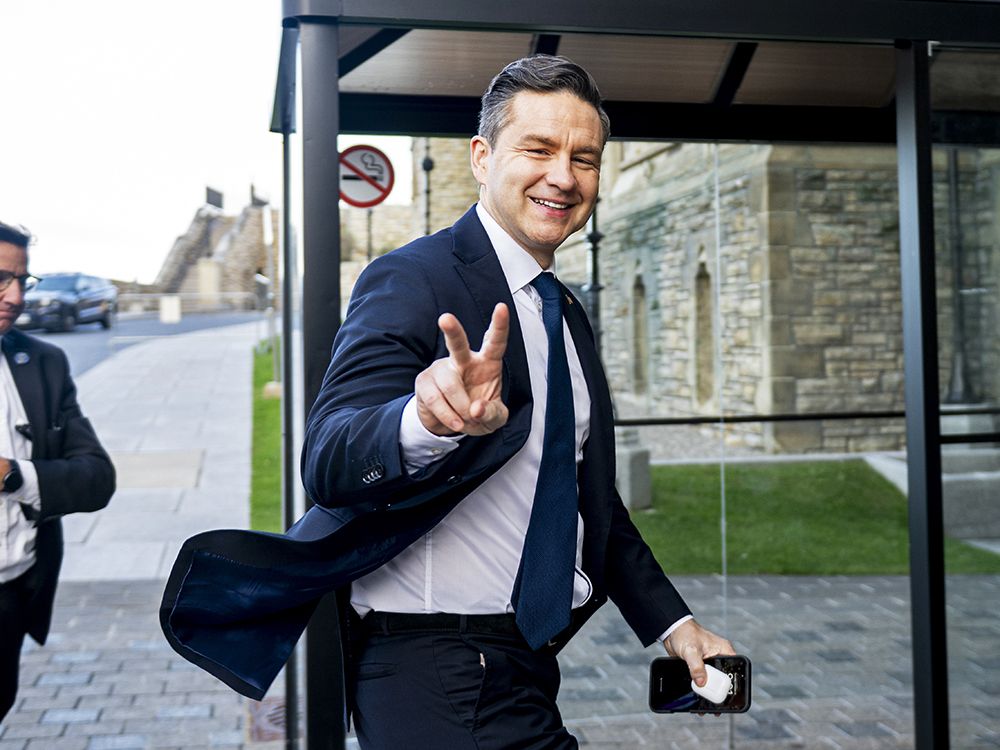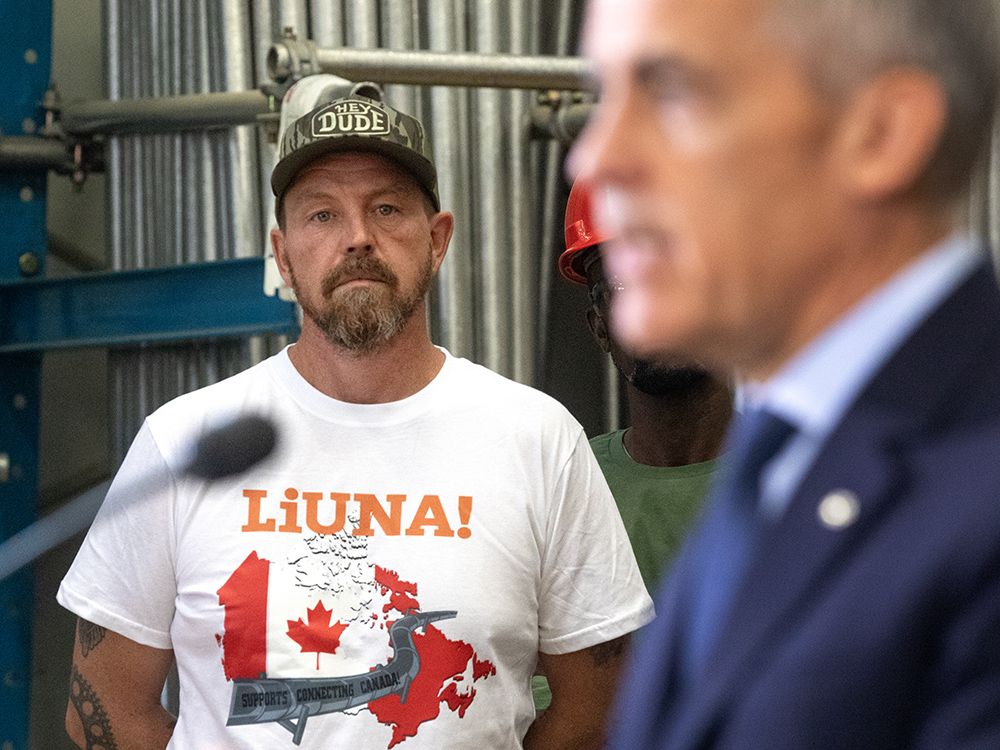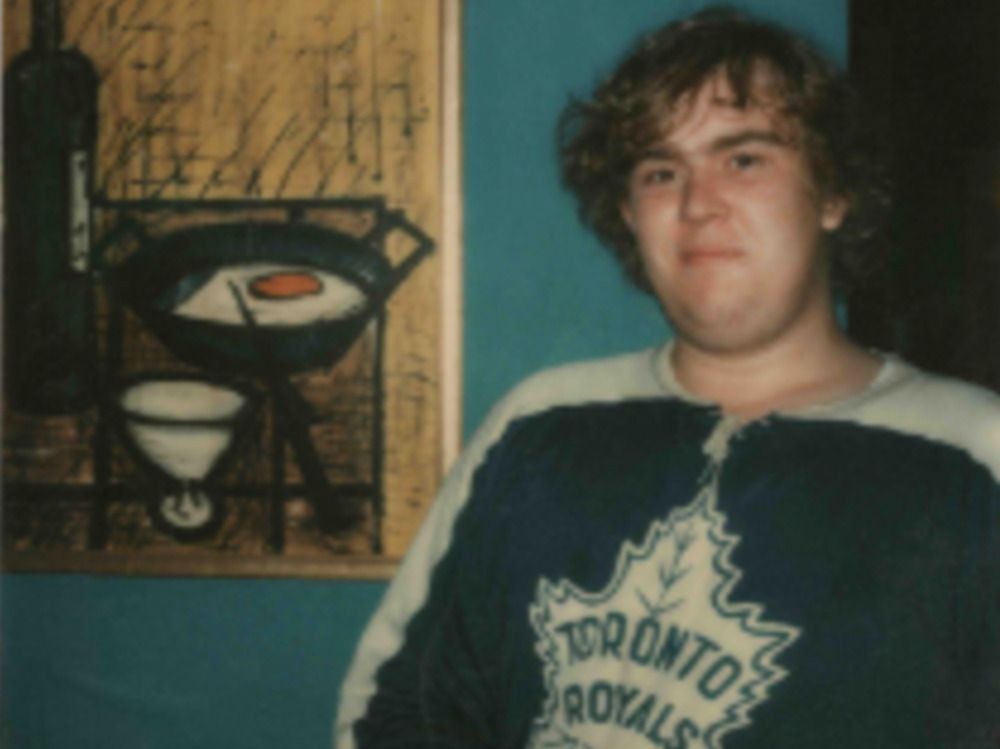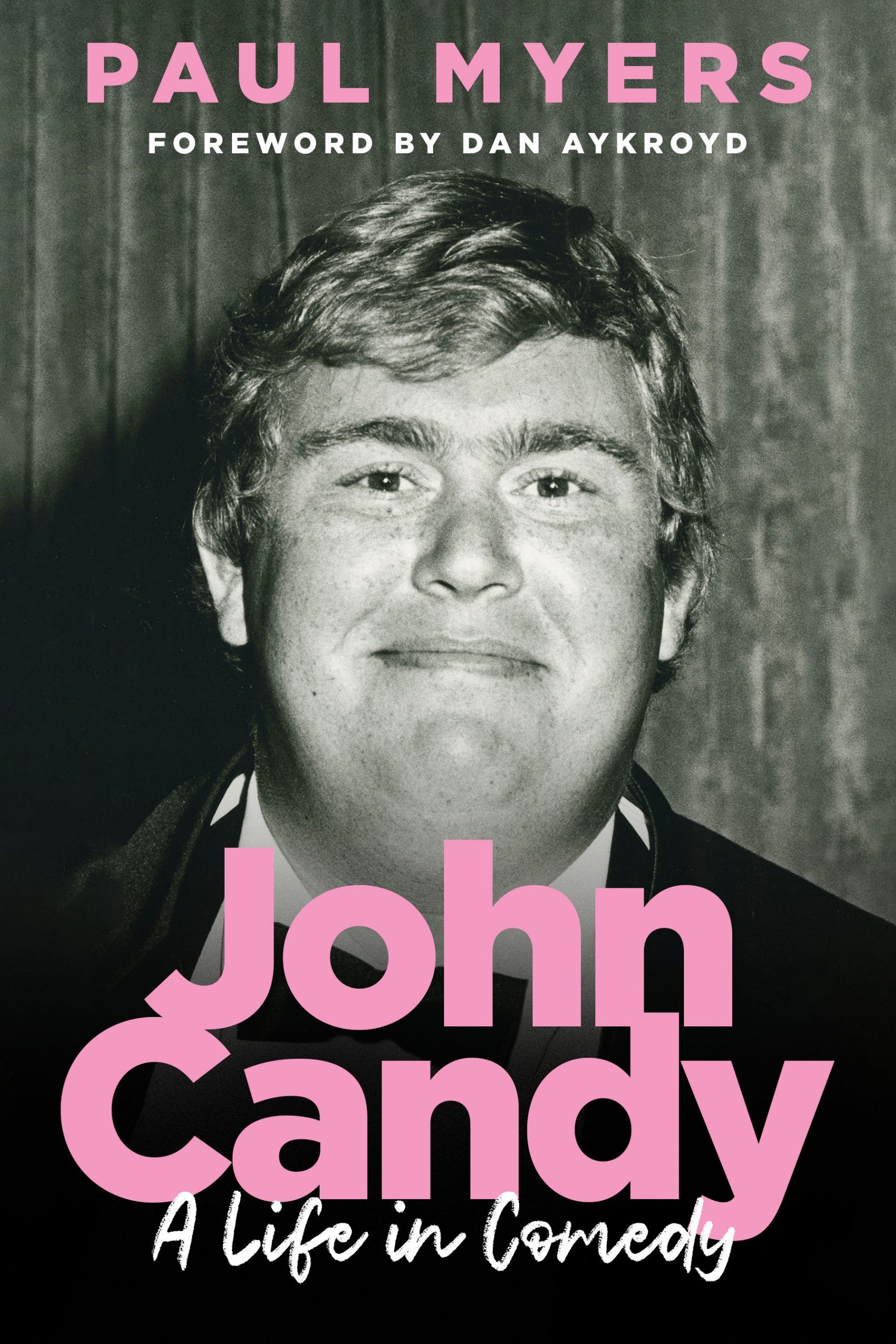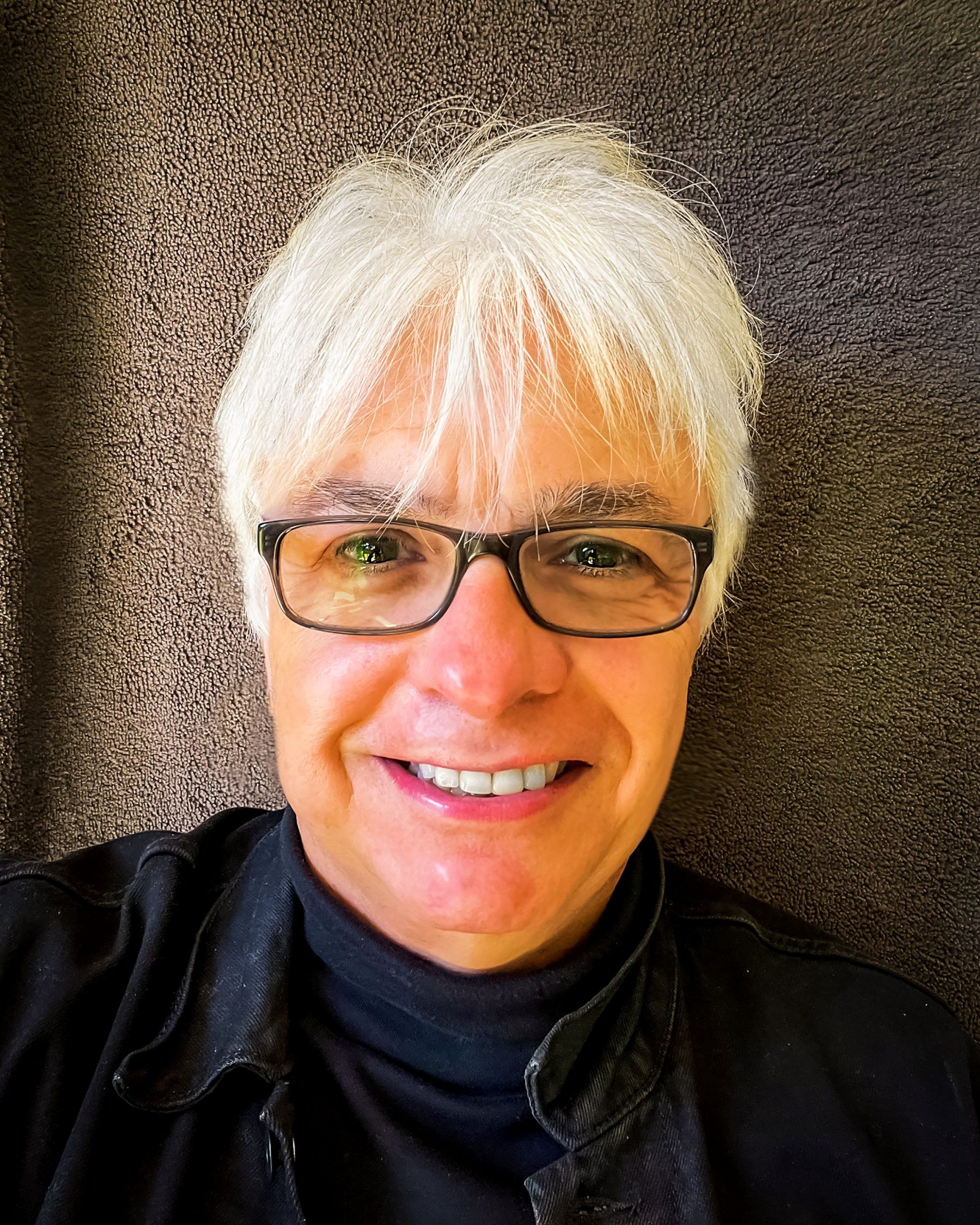
OTTAWA — Pierre Poilievre used to share a piece of advice when it came to political campaigning.
There were two things candidates need to talk about and talk about relentlessly, he instructed a room full of young conservatives at the Manning Centre for Building Democracy in 2009, back when he himself was still a fresh-faced MP.
The first thing to talk about is the people you want to represent. And the second thing is the future.
“Everything is about the future,” he told the crowd at the networking conference.
More than 15 years after his words emphasizing the future, Poilievre is coming off
a week-long controversy over his comments
about a former prime minister who has
quickly become ancient history
to most Canadians.
Some in his party believe the Conservative leader ought to listen to his own advice.
Poilievre’s recent comments to the YouTube channel Northern Perspective,
where he called the leadership of the RCMP “despicable”
over its handling of Trudeau-era scandals, triggered a bad news week for the Conservatives.
Two former Conservative staffers who worked under former prime minister Stephen Harper wrote op-eds in the Toronto Star, sparking questions about Poilievre’s leadership. The tumult also touched a nerve with some current Tory MPs, who in turn shared their concerns with others across the party, as well as anonymously with reporters.
The week brought
a frenzy of rumours about a possible potential floor-crossing
from the Conservatives to the Liberals.
A handful of MPs spoke out in defence of Poilievre.
And so far, nothing has come of it all.
Instead, Poilievre is faced with a more mundane, but no less serious problem. Some Conservatives, including some MPs, have privately been harbouring doubts over Poilievre’s chances in the next election, not only because of his style and reluctance to turn the page from his Trudeau-era tactics,
but also because of the present circumstances.
Namely, U.S. President Donald Trump’s economic threats, which polling shows push Canadians to prefer Prime Minister Mark Carney.
National Post interviewed more party insiders, former candidates, those inside the Conservative caucus and campaign managers about Poilievre’s chances of someday defeating Carney and how Conservatives could win, six months after the Tory leader’s first major electoral defeat. National Post granted sources the ability to speak on background, in order for them to express themselves freely.
As the reality of the Trump trade war sets in, with Carney seemingly unable to prevent widespread job losses, some party sources say that the battle will increasingly be waged on the domestic front, a territory that benefits Poilievre. Conservatives could win back voters 55 and older by chipping away at Carney’s positioning as Canada’s economic manager-in-chief.
And with Carney set to deliver his first budget in a little more than a week, it could be a turning point for the prime minister’s electoral honeymoon, especially with Trump abruptly ending trade talks with Canada late on Thursday night, once again highlighting Carney’s inability to secure a trade deal.
For the Conservatives to turn whatever opening that provides into a future path to victory, one senior Conservative put what Poilievre needs to do succinctly:
“Stop sounding like Donald Trump.”
With Carney more than willing to take Conservative ideas, what’s left, the source said, becomes a test of leadership.
The controversy created by Poilievre’s RCMP comments “magnified” simmering concerns over the leader’s instincts to launch aggressive attacks and stirred frustrations that he lacks the capacity to change, one caucus member said. What made matters worse, they added, was the fact that Poilievre targeted police — an odd look for a party that usually stands with law enforcement.
The party has nonetheless embarked on some of its own changes. Where Conservative MPs had long been restricted when it came to doing media interviews, they are now being given more freedom to talk to the national press.
And party spokeswoman Sarah Fischer confirmed a committee is eyeing changes to the party’s candidate nomination process. During the election, last-minute appointments from party leadership and a lack of nomination contests were a major concern among the grassroots and candidates themselves.
Others point to Poilievre doing more major media interviews and engaging more cordially with members of the Parliamentary Press Gallery, rather than squabbling with reporters when he disapproved of their questions.
But for some, whatever efforts the leader has made do not appear to go far enough — or to be sticking. A second caucus member described their own doubts about winning under Poilievre as entirely having to do with his tone, rather than his preparation or ideas.
While winning remains possible, it is not certain, they said.
Whatever misgivings some in caucus may have about those chances, it does not match the deep popularity Poilievre enjoys with the party base and the voter coalition he has assembled, which includes more young people and other low-income and working-class voters, particularly in the trades. Then there are the supporters who flocked to him over frustrations borne out of the COVID-19 pandemic. In the April election, it added up to more than 8 million Conservative voters and 41.3 per cent of the vote share.
To win the country, Poilievre first needs to keep winning with the party, which is far less of a challenge than convincing swing voters that he’s prime minister material. It helps that there appears to be no one inside the party currently organizing against his leadership.
Ben Woodfinden, who worked as Poilievre’s director of communications until the last election, argued that the issue of likability is less important for a Conservative leader.
A Conservative does not need to be adored to win, he said, but must be viewed as serious and competent, much like how Canadians saw former prime minister Stephen Harper.
“Presenting a version of Pierre, which is there … that is serious and competent and looks like a prime minister, I think, is part of what they need to do. People don’t have to love him.”
With Carney unafraid to show himself as a prime minister who spends a lot of time outside of Canada (he’s currently on a nine-day trip to Asia), Woodfinden added there’s an opportunity for Poilievre to showcase himself as someone who is laser-focused on Canadians, and on issues like crime, immigration, and the cost of living.

Ginny Roth, who worked as Poilievre’s director of communications during his 2022 leadership bid, said an open question for the Conservatives is how to best connect with voters in a way that differentiates them from the Liberals.
“When Poilievre was at his strongest, it was because he had a sort of fearless desire to lead public opinion on major issues, and not just pointing out what was bad about the situation, but talking about how he would do things differently,” she said, pointing to his crusade against the consumer carbon tax, as well as drugs and crime.
“He should do that again.”
A third caucus member said crime remains a significant issue for Conservatives, with fear rising in major cities, not likely to be allayed by the
Liberals’ recently announcing a new bail reform bill
.
The raw numbers from the spring election are also seen as encouraging, with the Tories having captured many new ridings, winning seats in NDP-friendly parts of Southern Ontario, and coming close to victory in Liberal strongholds once thought impenetrable, like Brampton, Ont..
The MP said that while Conservatives lost some of their traditional voters aged 55 and older in the last election, the party believes that cohort, who were alarmed over Trump, are now undergoing “buyer’s remorse,” now that they’ve seen Carney in action.
But Philippe Fournier, of the polling aggregator 338Canada.com, said the latest polling data from Leger and Abacus do not yet suggest a softening of that demographic for the Liberals.
In fact, he says the Liberals still have “some runway” when it comes to Canadians’ patience.
Still, with no immediate threat to his leadership and the overwhelming support of party members, Poilievre has a good deal of runway of his own when it comes to keeping his job.
Eventually, though, what Conservatives will judge him on is whether he has what it takes to take the job of prime minister away from Mark Carney.
National Post
staylor@postmedia.com
Our website is the place for the latest breaking news, exclusive scoops, longreads and provocative commentary. Please bookmark nationalpost.com and sign up for our daily newsletter, Posted, here.
